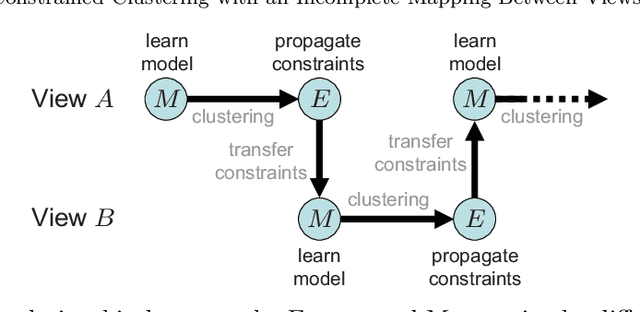Multi-view constrained clustering with an incomplete mapping between views
Paper and Code
Oct 09, 2012



Multi-view learning algorithms typically assume a complete bipartite mapping between the different views in order to exchange information during the learning process. However, many applications provide only a partial mapping between the views, creating a challenge for current methods. To address this problem, we propose a multi-view algorithm based on constrained clustering that can operate with an incomplete mapping. Given a set of pairwise constraints in each view, our approach propagates these constraints using a local similarity measure to those instances that can be mapped to the other views, allowing the propagated constraints to be transferred across views via the partial mapping. It uses co-EM to iteratively estimate the propagation within each view based on the current clustering model, transfer the constraints across views, and then update the clustering model. By alternating the learning process between views, this approach produces a unified clustering model that is consistent with all views. We show that this approach significantly improves clustering performance over several other methods for transferring constraints and allows multi-view clustering to be reliably applied when given a limited mapping between the views. Our evaluation reveals that the propagated constraints have high precision with respect to the true clusters in the data, explaining their benefit to clustering performance in both single- and multi-view learning scenarios.
 Add to Chrome
Add to Chrome Add to Firefox
Add to Firefox Add to Edge
Add to Edge